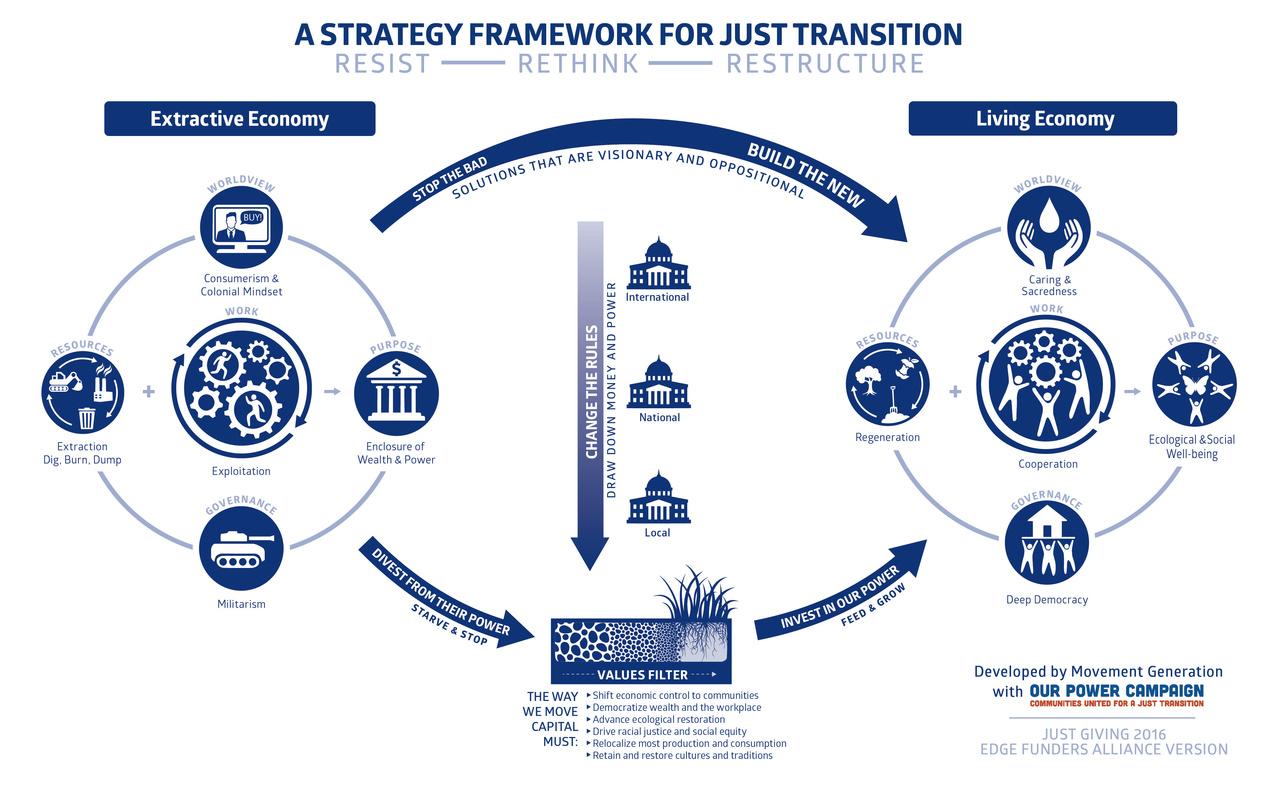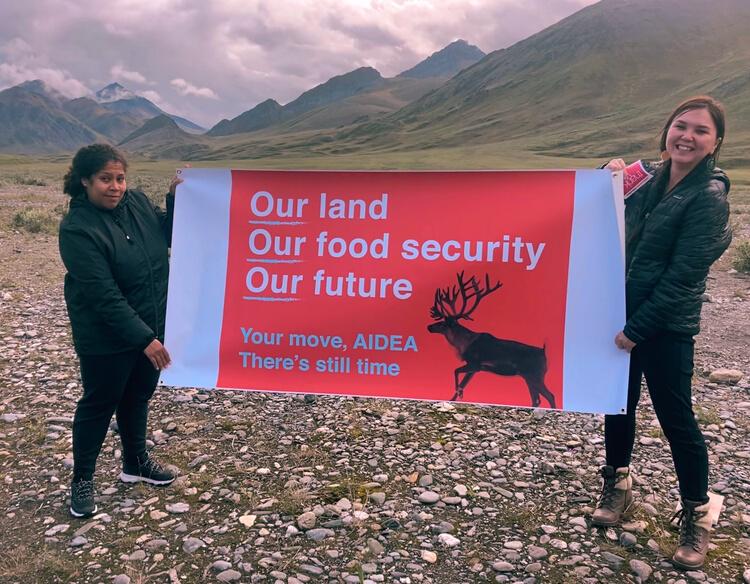
3 minute read
Defining “Economy” and "Just Transition"
WHAT IS A "REGENERATIVE ECONOMY"?
The roots of the word “economy” translate to the “management of home.” An economy is a set of agreements and relationships to community survival and well-being. Many overlapping economies determine where powers of change-making are shared or hoarded. The purpose of a given economy could be turning land, life, and labor into property, or returning land, life and labor to a balanced web of interdependent relationships. The great challenge of our time is to build and nurture sustainable communities: social, cultural, and physical environments which satisfy our needs and aspirations without diminishing opportunities for future generations. This is accomplished by diverting resources and power from the dominant extractive economy to invest in diverse and resilient regenerative economies. Instead of depleting resources, regenerative economies enhance communities’ long term ability to generate reciprocal wealth and wellbeing.
Advertisement
As we strive to build Alaska’s next economies aligned with Just Transition principles, it is essential that we orient ourselves to a deep understanding of the language we use to describe the future we want to build. The present global and local economies within which we negotiate our livelihoods are complex, layered systems that can often overwhelm our efforts to imagine holistic paths forward.

Indigenous knowledge teaches us to reciprocate with the land instead of taking from it; to only gather and hunt what is needed for ourselves, our families, and our communities. These reciprocal relationships with lands and waters continue to be built around respect guided by generational knowledge of sustainability. This is the foundation of regenerative economies.
In the eras of our ancestors, generations before colonization and global industry, our people understood, acknowledged and lived according to their sacred, interdependent place in the circles of life. Our economic vision for Alaska is rooted in Indigenous values and knowledge systems. Indigenous peoples are the stewards of land, animals, and oceans. Everything is interconnected, and therefore, the well-being of the environment is the well-being of the people.
All economic activity has ecological consequences. Some consequences are symbiotic, while others are parasitic. Indigenous land management practices, including selective harvesting and intentional burning, actually enhance ecological processes and augment abundance; humans are not inherently harmful. When human relationships with place are damaged or interrupted, the ecological consequences can be deadly. The scale and pace of globalization combined with the consolidation of wealth and power for the elite has made it impossible for Earth to respond fast enough. Globalizing demands of ecosystems paired with destructive economic practices have compromised the life support systems of the planet. These systems destroy biodiversity, exploit labor, kill cultures, pollute water and disrupt the atmospheric-hydrologic cycle. Because of unrestrained capitalist activity, we are now in the sixth great extinction.

We must transition away from a destructive economic system to one that returns people to balance with Earth. A Just Transition requires us to build a visionary economy for all life through strategies that democratize, decentralize, decolonize, and diversify economic activity while reducing consumption and redistributing resources and power. Just Transition initiatives shift the economy from dirty energy to community-controlled energy; from funding new roads to expanding adequate, accessible public transit; from incinerators and landfills to recycling plants, fix-it shops, and tool libraries; from industrial food systems to food sovereignty; from houselessness to systems that include quality, affordable housing and housing co-ops; and from rampant resource extraction to ecosystem restoration. The core of Just Transition is deep democracy and decolonization, wherein workers and communities have control over the decisions that affect their daily lives and traditional lands.











